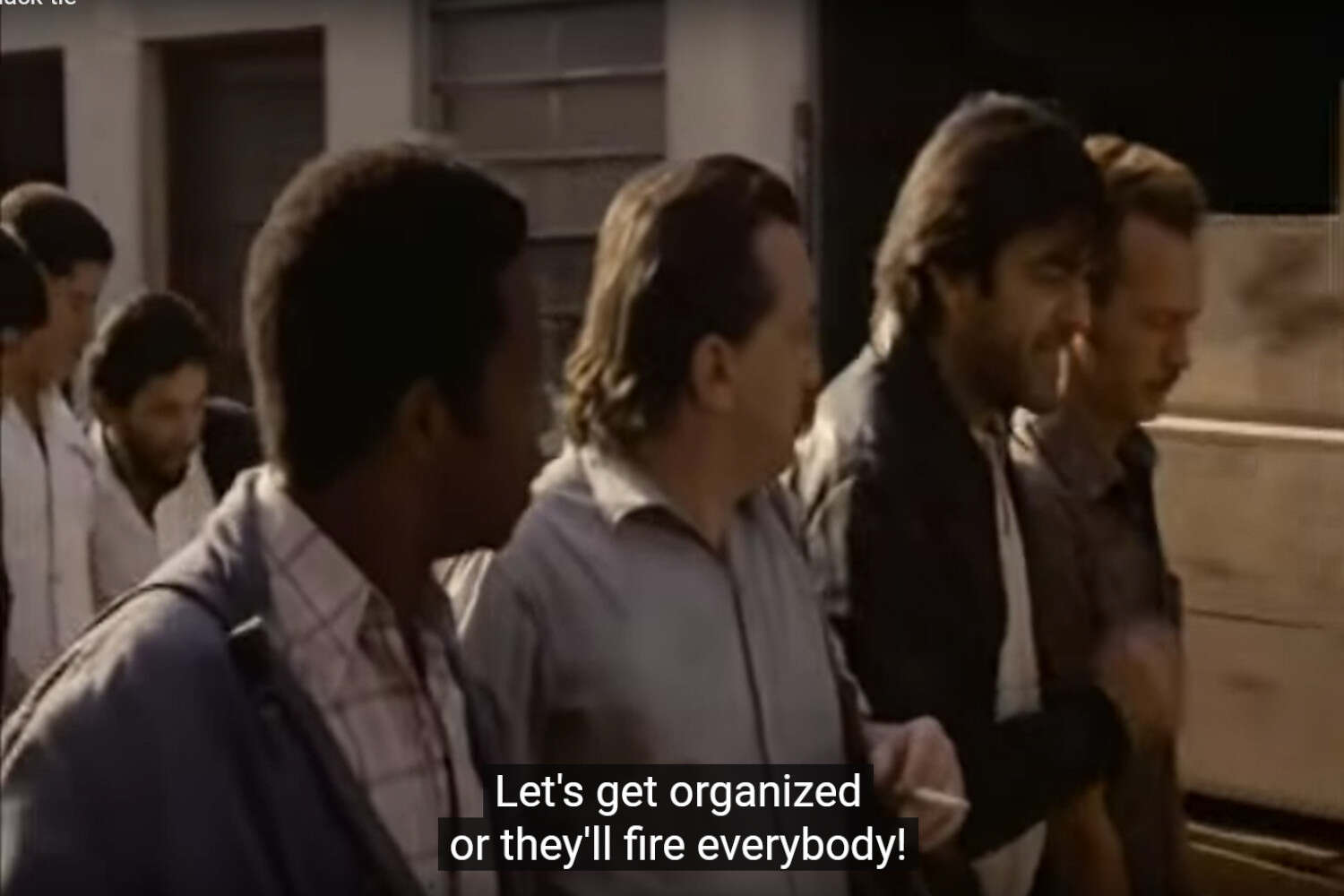Reflections on the Brazilian film: "They don't wear black-tie”
The play “They don’t wear a black-tie” (Eles não usam black-tie) was written by Gianfrancesco Guarnieri in 1958 in Brazil, set in the context of the city of São Paulo, which at that time was going through a fast and cruel process of industrialization. This process required more and more workers to work in the various industries and, obviously, there was no fair wage being offered to them. This play presents the scenario of a workers strike within several industries in the metropolitan region of São Paulo. We can see the drama and courage of all those workers, facing the repression of the Brazilian State that, historically, has used the police to arrest, beat and/or kill protesters. This play was a milestone in Brazilian theater's history, as it showed a series of actresses and actors engaged in the workers' cause.
In 1981, the play was adapted into a film. "They don't wear a black-tie" (Eles não usam black-tie) was directed by Leon Hirszman. This film won awards at several international film festivals, most notably at the Venice Film Festival, winning the Grand Jury Prize. In November 2015, the film was featured on the Brazilian Association of Film Critics' list as one of the 100 best Brazilian films of all time.
It helps to think about the Brazilian workers’ struggle for social, political and economic rights. It is worth noting that at that time, when the play and the film were released, (despite being launched at different times) mentioning in theaters and cinemas issues related to the lack of workers' labor rights sounded subversive and actors and actresses involved in such productions could suffer reprisals from the state. Since then, many strikes and struggles have taken place so that, at a minimum, working people's rights were respected. We are now living in 2023 and more than 60 years have passed since the play by Gianfrancesco Guarnieri was written. Obviously, if history was rectilinear, we could suppose that, after so much struggling for rights, nowadays we would have a series of benefits from the democratic state of law. However, what we see is just the opposite: with each labor reform made by the Brazilian state, the working class has lost more of its rights.
On the other hand, many businessmen and businesswomen, in alliance with politicians, are seeking to earn increasing amounts of profit without caring about social and ecological consequences. Maintaining this capitalist order results in the development of a morbid economy, one that destroys nature, indigenous people, the poor... In this economic rationality, there is no people; there is no country to defend; there is no hero saving the victims in the end... In this story, everyone dies: oppressors and oppressed alike.
Lacan, in dialogue with Marx, understands that surplus-value leaves an unconscious mark called surplus-jouissance (or surplus-enjoyment), understood as being the libidinal excess resulting from repetitive and symptomatic psychological work, that is, the exploratory relations maintained by the capitalist system produce a financial gain (profit) and also a subjective jouissance (libidinal gain) that sustains this exploratory process. Seen in this light, proletarians are being stripped of their function of knowledge and power. For this reason, they are placed as a mere labor force that moves the gears of the capitalist system.
However, in the context of Lacanian-Marxist logic, strikes serve to break this morbid symptom of the capitalist economy because they expose the conflicts existing between social classes and thus show society that this capitalist system is failing. Strikes also point to the "horror" of this system that feeds on the exploitation of human life and of the planet. Strikes can be understood as being an impediment to the production of surplus-value and surplus-jouissance because they create a rupture with the logic of exploitation. That is why, often, the state's reaction, in order to maintain the capitalist order, is to violently repress workers' strikes: violence and repression regulated at the judiciary level at the service of capital.
For those who would like to watch the film, here is the link with English subtitles.
https://www.youtube.com/watch?v=Uzl2K1bDRog&ab_channel=TVIndioMaloqueiro

Write comment
Your email address will not be published. Comments are published only after moderation.
Comments ()